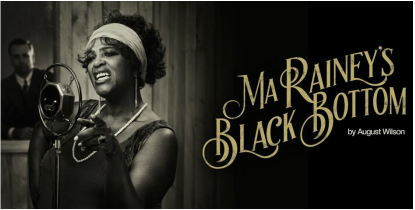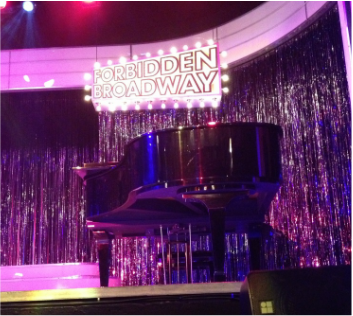 "The Essential Vegan Travel Guide" & Interview with the Author, The Vegan Word!by Randi / June 30, 2016
"The Essential Vegan Travel Guide" & Interview with the Author, The Vegan Word!by Randi / June 30, 2016Ma Rainey’s Black Bottom is a play from 1982, not a new play as I must admit I thought because I never heard of it before it won the Olivier for Best Revival of a Play this year. That’s the Oliviers (West End), not the Tonys (Broadway), so just keep that in mind. (Actually it won the Tony for Best Play when it premiered!) And this is a good production, with some powerful performances and an excellent set, but goodness, I did not feel the material working. There is no plot. Nothing really happens, and yet so much feels about to happen that it’s almost disappointing.
I was also so psyched to hear her sing a lot, as I assumed she would. I mean, I knew it wasn’t produced as a musical, it was a play, but so was “Lady Day” and that was all music (2 hours with Billie Holiday – you’re gonna want it to be mostly music!). I figured it was technically a play because, while full of music, it wasn’t music that advanced the plot or composed part of the plot, as musicals are defined. (For laymen: “Pitch Perfect”, for example, isn’t a ‘musical’ despite being very musical, because the characters actively know they are singing and it’s not like they are living in song or singing their feelings instead of talking them. The music isn’t the plot.)
Well, surprise, Ma Rainey isn’t even that kind of play.
It’s mostly Ma’s band, four musicians with differing viewpoints on life and race, talking in the rehearsal room before Ma arrives to record a session, and then talking after Ma leaves the session. Ma is a featured character, if that. I’m sure if you know this in advance, you’re good to go, but I didn’t, so this was incredibly disappointing. Ma sang for about 20 seconds and it was RG because she was played by the great Sharon D. Clarke, but then it was all talk and no Ma.
So what is it about, this revered play from the esteemed August Wilson? It’s Chicago in the 1920s and the band is being taken advantage of by the white producers, of course, and arguing about race and their experience as black men at this time. They talk and argue and wait, along with the producers as they wait for Ma. And they wait some more. They’re being held in the basement rehearsal room in the recording studio, which we several parts of in this impressive set.
When Ma comes really late, she sings a tiny bit, and pisses off the white producers because of how late everything is and because she demands that her stuttering nephew do the intro to the title song, which takes a while, and everyone gets pissed off, and then Ma leaves. The entire part that was advertised was the tiniest part of the show. Sharon was really good too. Darn.
After the session, the men retreat to their basement cave and argue more. Why aren’t they going home? (It’s unclear that they are waiting to be paid, which I just looked up.) They finished the session. I was confused! And one of them was fired! I was like past Bunuel asking questions of future Bunuel’s art in “Midnight in Paris’ – “why don’t they just leave?” Somehow the little micro (or not so micro) aggressions build and build to a point that you can’t believe it reaches.
The play, depending on how it’s performed, can build to this climax in a way where even though it is a shock, it’s not a surprise that something catastrophic happened like this. But in this production, it was so unexpected and didn’t feel earned. Not like ooh that’s an intriguing surprise, more like, that’s action from a different play entirely. How it was directed and acted, no matter how good the individual parts were, it didn’t feel like they had a cohesive goal. I honestly don’t know what the play was trying to achieve. The tone was all over the place. Amid the harrowing stories, there would be this air of levity in the direction of the show, almost treating it like a comedy, and I couldn’t tell what it wanted to be.
Also, I get that most people probably are more familiar with this show, but I found the advertising misleading. The main show art is of Ma at a microphone. If you saw that, what would you think the show was about? Same as I did, right? I should have done research but most people don’t. Not since the advertising campaign for “The Scottsboro Boys” in London have I found marketing materials to be so misleading. Nonetheless, I have to applaud the acting across the board and the production values. A lot of the men’s long talks were provocative and challenging, and it really does say genuinely important things about injustice and race. As monologues, they are effective, but as a play it is stagnant.








